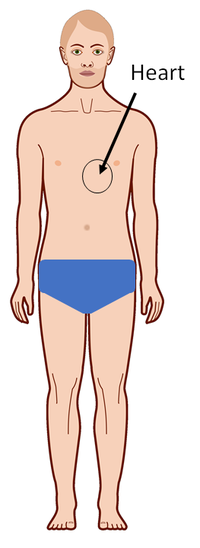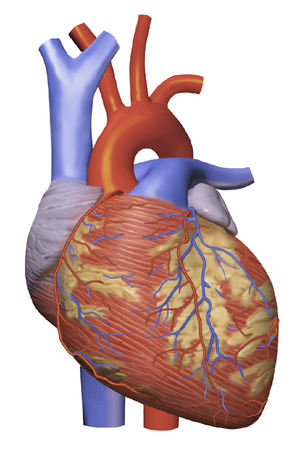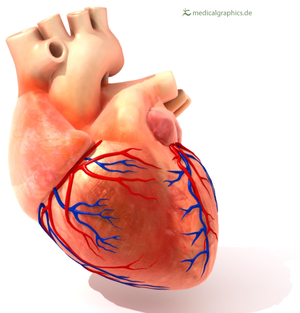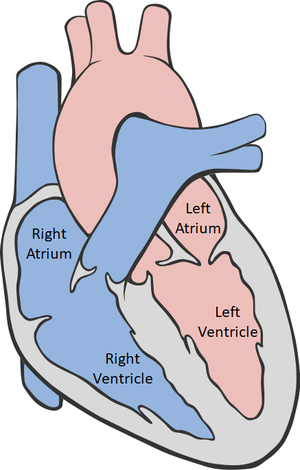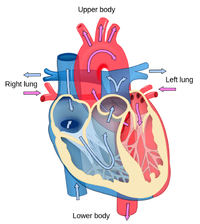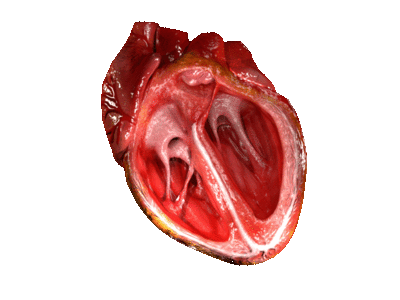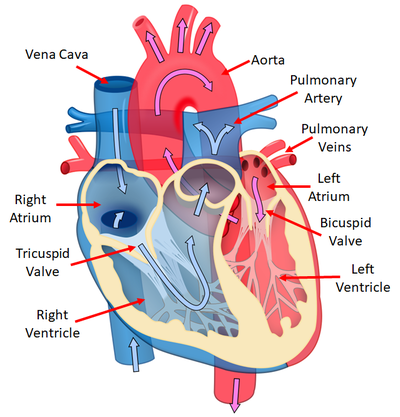Key Stage 1
Meaning
The heart is a part of the body in the centre of your chest.
|
|
| This picture shows where the heart is.
|
Key Stage 2
Meaning
The heart is an organ which pumps blood around the body.
|
|
| A computer drawing of a heart.
|
About the Heart
- The heart is mostly muscle.
- The muscles in the heart squeeze and relax to pump blood.
- A healthy heart beats around 70 times per minute when you are resting.
- The heart beats faster when you exercise.
- The heart is protected by the rib cage.
Key Stage 3
Meaning
The heart is an organ which pumps blood around the body.
|
|
| A computer generated image of a heart.
|
About the Heart
- The heart is made of muscle tissue, connective tissue, nerve tissue, and blood.
- The muscles in the heart contract and relax to pump blood.
- A healthy heart beats around 70 times per minute when you are resting.
- The heart beats faster when you exercise.
- The heart is protected by the rib cage.
- The heart has 4 separate chambers; the Right Atrium, Right Ventricle, Left Atrium and Left Ventricle.
- Deoxygenated blood enters the right atrium. The atria contract, pushing the blood from the right atrium into the right ventricle. The ventricles contract pushing the blood out of the right ventricle towards the lungs. Oxygenated blood returns from the lungs and enters the left atrium. The atria contract, pushing the blood from the Left atrium into the Left ventricle. The ventricles contract pushing the blood out of the Left ventricle to the rest of the body.
Key Stage 4
Meaning
The heart is an organ in the circulatory system which pumps blood around the body.
About the Heart
- The heart has 4 separate chambers; the Right Atrium, Right Ventricle, Left Atrium and Left Ventricle.
- Deoxygenated blood enters the right atrium from the Vena Cava. The atria contract, pushing the blood from the right atrium through the tricuspid valve into the right ventricle. The ventricles contract pushing the blood out of the right ventricle through the semilunar valve into the pulmonary artery which takes blood to the lungs. Oxygenated blood returns from the lungs through the pulmonary veins and enters the left atrium. The atria contract, pushing the blood from the Left atrium through the bicuspid valve into the Left ventricle. The ventricles contract pushing the blood out of the Left ventricle through the semilunar valve into the Aorta which takes the blood to the rest of the body.
